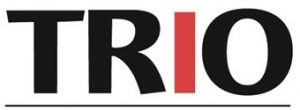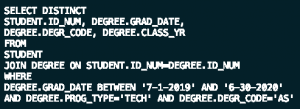TRIO-SSS RFP Released Early
The TRIO-Student Support Services (TRIO-SSS) Grant Cycle for 2024 has officially opened—a full six months earlier than anticipated. This early release may significantly impact your TRIO program’s operations and planning.
Challenges You May Face
Early Start: Initiating the grant application process much sooner than planned.
Schedule Adjustments: Altering summer schedules to manage the early grant release. TRIO-SSS RFP Released Early
Operational Disruptions: Handling the increased workload as academic year-end activities such as banquets and graduations pick up.
Data Management: Securing and verifying necessary data under tight deadlines.
Finding Time to Review: Large grants take considerable time to review and edit.
How We Can Assist TRIO-SSS RFP Released Early
Full Draft Review: Ensure your application is clear, well-organized, free of grammar and syntax errors, and includes all required components as per the RFP. TRIO-SSS RFP Released Early
Detailed Line-Read: Our experts will conduct an exhaustive line-by-line analysis to perfect your document.
Specialized Data Assistance
Our CEO, with nearly a decade of experience as a Chief Information Officer handling MS-SQL databases in higher education and in support of TRIO-SSS grants, is uniquely equipped to support your data needs.
Script Writing for Data Extraction: If your IT department is swamped, we can write MS-SQL scripts to extract necessary data using static ID sets of your cohorts.
Data Accuracy: We will review your data, examining for errors in computation and consistency.
Full Access to a Personal Project Area in our Client Management System
As a Client Working With Us, You Get: TRIO-SSS RFP Released Early
Full access to a secure project area (with high-cap cloud storage*)
A task-tracking system you can customize to help keep you and your team on schedule
Add as many team members as you want, no limit
A private community communication feature for posting messages and content to your team
Some General Tips for Grant Writing
Understanding the Grant’s Purpose and Structure
1. Thorough Research: Begin by carefully reading through all the materials available on the funder’s website. This should include information about the grant’s objectives, past recipients, thematic priorities, and any available resources such as webinars or writing tips. Familiarizing yourself with these details will allow you to tailor your proposal to align closely with the funder’s goals.
2. Early Preparation: Start drafting your proposal at least three to six months in advance of the deadline. This timeline allows for multiple revisions and refinement to ensure clarity, logical structure, and persuasiveness. Engage colleagues from your own and other disciplines to critique and provide feedback on your drafts.
Adhering to Submission Guidelines
3. Strict Compliance: Follow the submission instructions meticulously. Ensure that your proposal meets all specified criteria such as word count, font size, page margins, and the required number of recommendation letters. Non-compliance with these guidelines could lead to automatic rejection.
4. Checklist Creation: Develop a checklist based on the proposal requirements. This will help you track your progress and ensure that no essential elements or deadlines are overlooked.
5. Recommendation Letters: Notify individuals who will write your letters of recommendation well in advance—at least a month before the deadline. Provide them with a summary of the grant and suggestions on aspects of your work to highlight, ensuring the letters are pertinent and compelling.
Writing a Convincing Proposal
6. Audience Awareness: Tailor the style and content of your proposal based on the anticipated reviewers, which could range from specialists in your field to generalists. This might involve simplifying jargon and providing definitions for technical terms.
7. Evaluation Criteria: Prior to writing, review the selection criteria thoroughly and keep these in mind throughout the drafting process. Once your draft is complete, revisit the criteria to ensure all aspects are adequately addressed.
8. Feasibility of Project: Clearly demonstrate that your proposed project is achievable within the set timeframe and with the resources at your disposal. Highlight your qualifications and preparedness to carry out the research or project activities.
Key Sections to Include in Your Proposal
9. Project Overview: Provide a concise abstract-like summary that outlines the main question, hypothesis, or research focus. Explain the significance of your project and how it contributes to your discipline.
10. Background Information: Detail the context and significance of your research question or focus area. Explain why this topic is pertinent and worthy of exploration.
11. Theoretical Framework: Discuss the theoretical underpinnings and key scholarly works that inform your project. Explain how your research builds on or diverges from existing studies and how it will impact your field.
12. Methodology: Justify your research methods and site selection. Explain any innovative approaches and why they are suited to your research goals.
13. Preliminary Work: Outline any prior research that has led to your current proposal. Include details about previous studies, findings, and any supporting data.
14. Skills and Preparedness: Describe the skills and knowledge you have acquired that qualify you to undertake the proposed research. This may include language skills, technical training, or relevant coursework.
15. Work Plan: Detail the specific activities you plan to undertake during the project period. Include timelines, travel plans, and expected outcomes.
16. Collaboration and Support: Where applicable, mention any collaborations with other researchers or institutions. Describe how these relationships will enhance and support your research.
*Cloud storage is limited to non-video files; all other file types are acceptable with no cap, as our system has a massive storage capacity. Based on size, your files will be either maintained in perpetuity or purged at the discretion of the CEO. In the event of a data purge you will be contacted first to inquire whether you need copies of the data sent. We will not purge any data without notifying you first.




